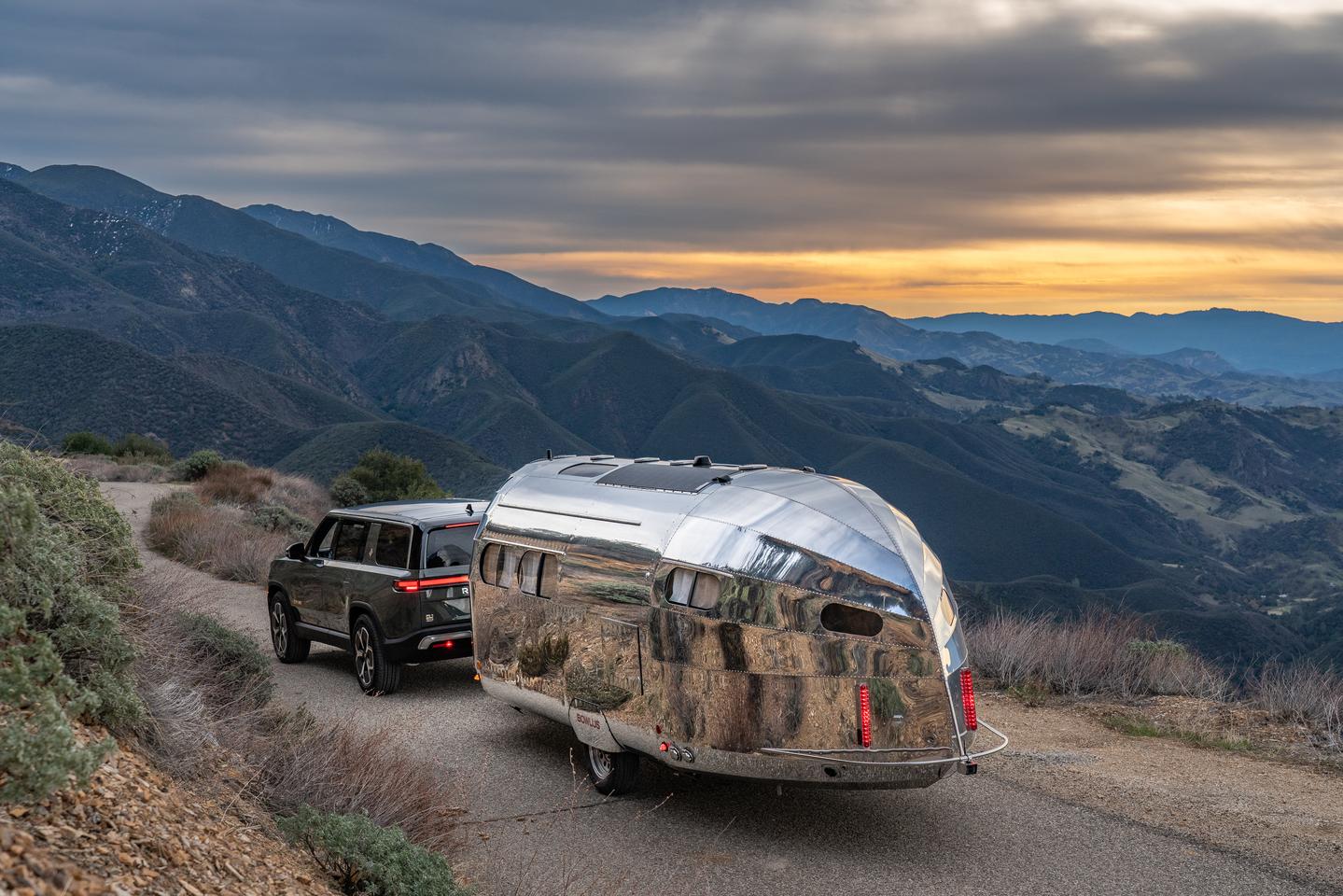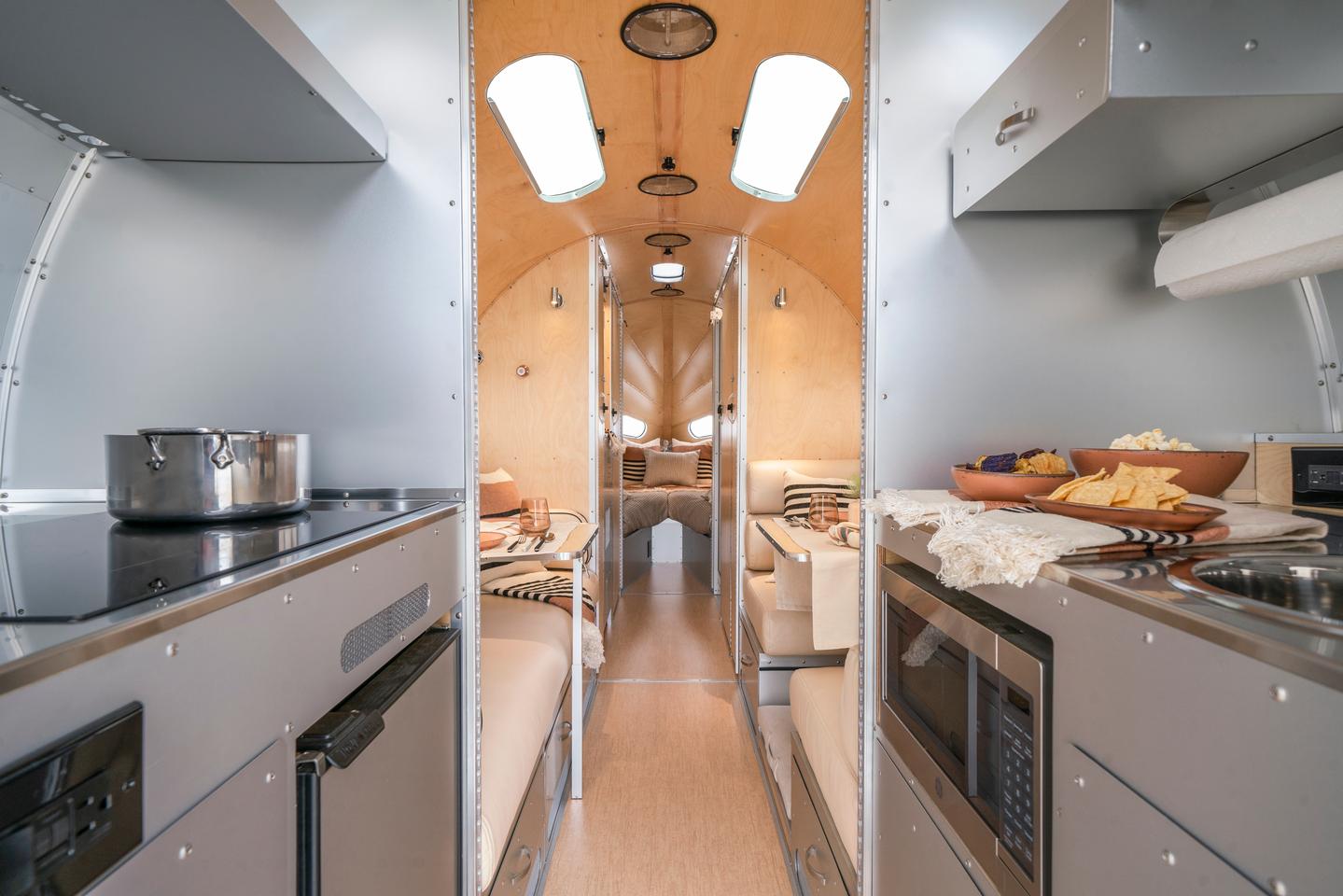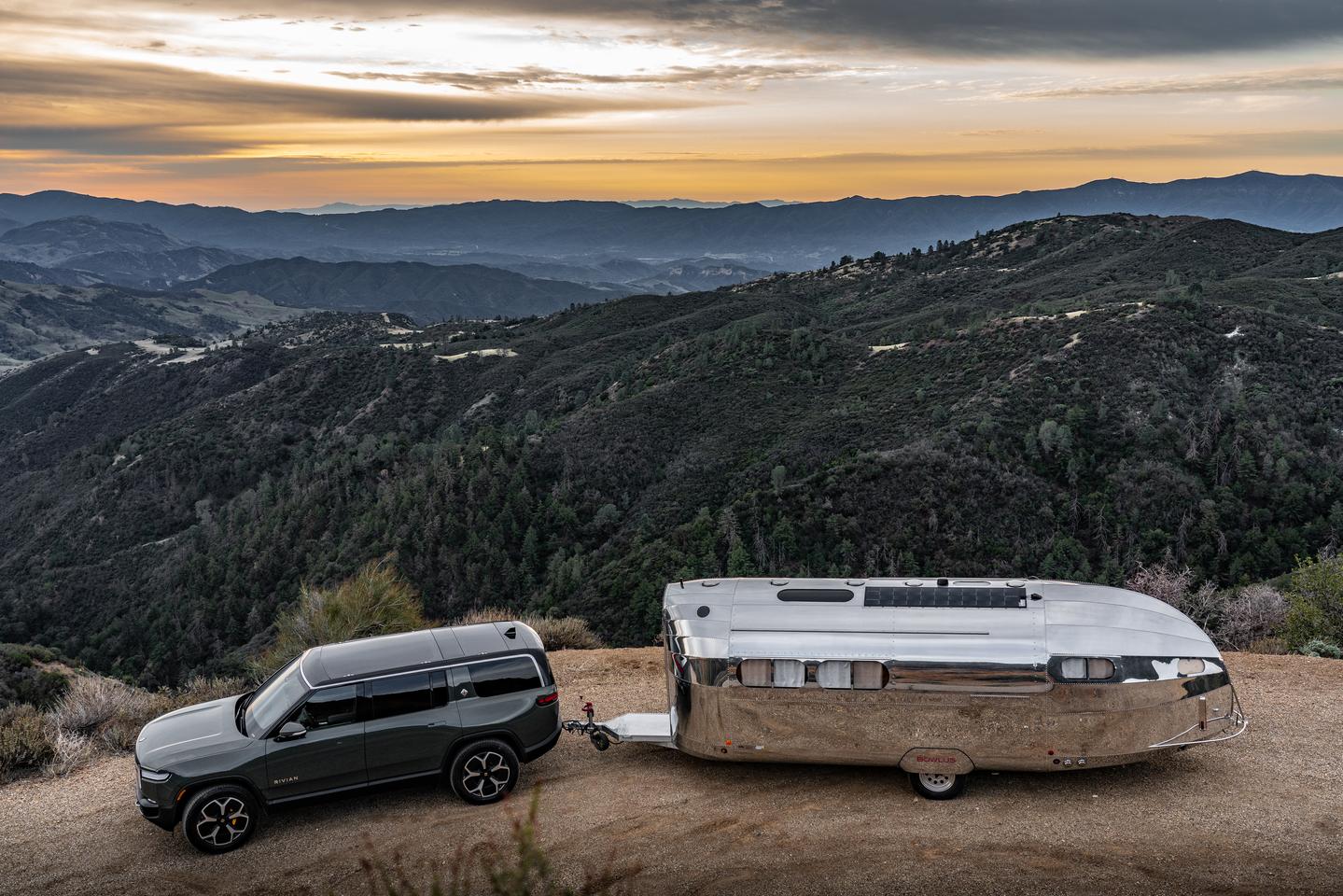Luxury travel trailer maker Bowlus was one of the very first American RV manufacturers to lean into high-capacity battery power, launching a lithium-powered trailer capable of quick-starting a dead Tesla way back before electrified RVs were trending. Now that the electric camping competition is catching up, Bowlus is making the move to become an all-electric RV brand, removing the option of LPG and powering each of its three trailers entirely with lithium batteries.
Bowlus announced its lineup change this week, saying that it follows the success it’s had with the Volterra, the company’s first fully electric trailer model, launched in 2022. The move to pure battery power represents a slight shift in direction but was always woven into the vision founder and CEO Geneva Long had when reviving the Bowlus nameplate a decade ago.
Ordinarily we might be inclined to dismiss a claim like Bowlus’ “vision” as PR-bolstering revisionist history, but the company has been leading the way in American electric RVing for nearly as long as it’s been selling trailers. Its Lithium+ model launched back in 2016, bringing first-of-its-kind capabilities such as running air conditioning off the grid and offering emergency EV-charging capabilities. So even if full electrification wasn’t a cornerstone of the Bowlus vision when Long was hard at work on the very first Road Chief, it became a real part of that vision soon thereafter.

Bowlus
Bowlus plans to phase out LPG, so customers can still request an LPG tank on their trailer build. The option will be removed on new orders and each trailer will be available with battery power alone from there on out.
“Our move to fully electric is important because it sets a precedent,” explained Long. “Where most RV brands use old technology involving propane and gas or traditional batteries, we are making new ground, just like we always have. Picture yourself enjoying nature without the noise of a generator – it’s a fully immersive experience to be all-electric.”

Bowlus
Interestingly, Bowlus won’t upgrade its available battery packs to compensate for the loss of LPG. The 25.6-foot (7.8-m) Heritage base model will still come with a 2-kWh lithium-iron-phosphate battery, the mid-level 27-ft (8.2-m) Terra Firma an 8-kWh battery, and the flagship 27-ft Volterra a 17-kWh pack. As before, Heritage buyers can also upgrade to 4- or 6-kWh packs.
On the plus side, the lack of added battery capacity keeps base prices at the same level, ranging between US$159,000 for the Heritage to $310,000 for the Volterra. We suppose Bowlus can always increase battery size in the future should customers demand or simply as battery technology improves and prices come down.

Bowlus
The Aerosolar system Bowlus launched on the Volterra helps campers get the most off-grid power possible. The lightweight panels adhere closely to Bowlus’ signature Streamline Moderne shape and charge the battery while driving and stationary at camp. Bowlus says they’re 12 percent more efficient than conventional solar cells, helping to keep the large 17-kWh battery running off-grid indefinitely, depending upon the individual’s electrical usage.
Bowlus’ move to an electric lineup comes as a variety of new and established players are seeking to grow the US all-electric RV market. Just this month, startup Lightship previewed its L1, a 27-ft trailer that uses an 80-kWh lithium battery not only for camping amenities but also to power a self-propulsion unit that deletes effective weight on the tow vehicle. That model is scheduled to go into production next year.
Other US startups and small manufacturers that have shown or launched electric production camper designs include Aero Build, Colorado Campworks and Colorado Teardrops. Large RV manufacturers including Winnebago, Airstream and Thor Industries have also revealed electrified RV designs, but those remain in the concept and development stages.
Source: Bowlus
Source of Article